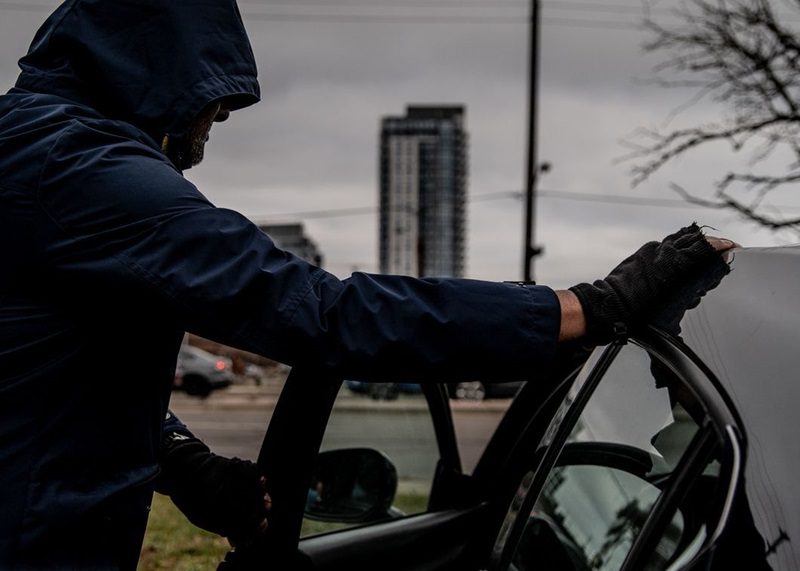How auto theft is evolving

Fraudsters are adapting their methods in an attempt to fly under the claims radar, and even using artificial intelligence to create false documentation and platforms for claims handling, speakers said at the Insurance Institute’s 2024 CIP Society Symposium.
Auto theft has reached a crisis level in Canada and internationally, with the Canadian P&C industry paying out $1.2 billion in auto theft claims in 2022. And with economic uncertainty always looming on the horizon, opportunistic fraud claims are spiking.
“So, instead of me coming to you and trying to hit you for a $100,000 claim, I’m going to nickel and dime you by hitting you for $15,000 and $20,000 claims to keep it under a radar for you with the expectation that you’re going to pay them faster,” says Garry Robertson, director of Northbridge Financial Corporation’s special investigations unit. “We’re starting to see that as the development of the fraud.”
As always, criminals are trying to exploit weaknesses in the system through organized crime groups. But the federal government is taking aim at organized crime by making it harder to steal vehicles and export stolen vehicles, and proposing harsher criminal penalties.
In its 2024 budget released Tuesday, the federal government announced its intent to amend the Criminal Code to provide additional tools for law enforcement and prosecutors to address auto theft. This includes:
New criminal offences for auto theft involving the use of violence or links to organized crime; possession or distribution of an electronic or digital device for the purposes of committing auto theft; and laundering proceeds of a crime for the benefit of a criminal organization
A new aggravating factor at sentencing if an offender involved a young person in committing an offence under the Criminal Code
A proposed amendment to the Radiocommunication Act to regulate the sale, possession, distribution and import of devices used to steal cars. This will enable law enforcement agencies to remove devices believed to be used to steal cars from the Canadian marketplace.
AI is also impacting the auto fraud world. “We’re seeing AI platforms that are offering up, ‘We can manage $15,000 to $20,000 claims as your adjusters,’ who are now swamped with…the more complex files.”
Fraud investigators are also seeing “supporting documentation that is absolutely perfect,” from AI, and not just for auto theft. Robertson references an instance of 28 fake boat thefts — “Every single one of them was fake paper.”
Red flags
He says a major red flag used to be if a claim was submitted within 30 to 60 days of the initial policy inception. Fraudsters know this, and are waiting longer to submit a claim.
“Now I’m waiting six months before I do it,” Robertson says. “If I’m exporting a vehicle and I’m involved in it, I’m not putting it in right way. I’m waiting until I know it’s on the boat overseas, landed at the foreign port of jurisdiction, and then I’m reporting the theft.”
Betty Ng, director, Ontario and investigation coordination support services at Équité Association, says fraudsters also understand insurance companies have different processes when it comes to, say, non-sufficient funds.
“We’ve actually seen patterns, where they will stay on your books for upwards of six months,” she says. For example, by paying a small amount of an owing premium, “just to stay on the books for six months, and then file that claim because now the vehicle is confirmed it’s landed somewhere overseas.”
For Chubb Canada, they’re seeing more break-and-enters and high-value vehicle thefts. “We saw a 500% increase in auto theft between 2018 and 2023,” and a doubling in Toronto, says Jennifer Curry, the insurer’s senior vice president and Canadian claims manager.
Robertson says the auto theft issue is at a level now that was expected during the COVID years.
“I expected to see the economic downturn during COVID,” he says. “We expected to see owner give-ups of vehicles. We expected to see the opportunistic fraud coming up during the COVID years, but…the COVID payments, the leasing and finance companies allowing you to defer and put that over, that all kind of pushed it over and pushed it out of the way during COVID because the money was still coming in.”
But now with an uncertain economy, fraud is ramping up. “[Consumers] can’t afford the leases,” Robertson says. “We are seeing owner give-ups of vehicles, cars burning, cars being destroyed, getting rid of them because I can’t afford the lease and finance payments.”
Feature image by iStock.com/Flex Point Security



